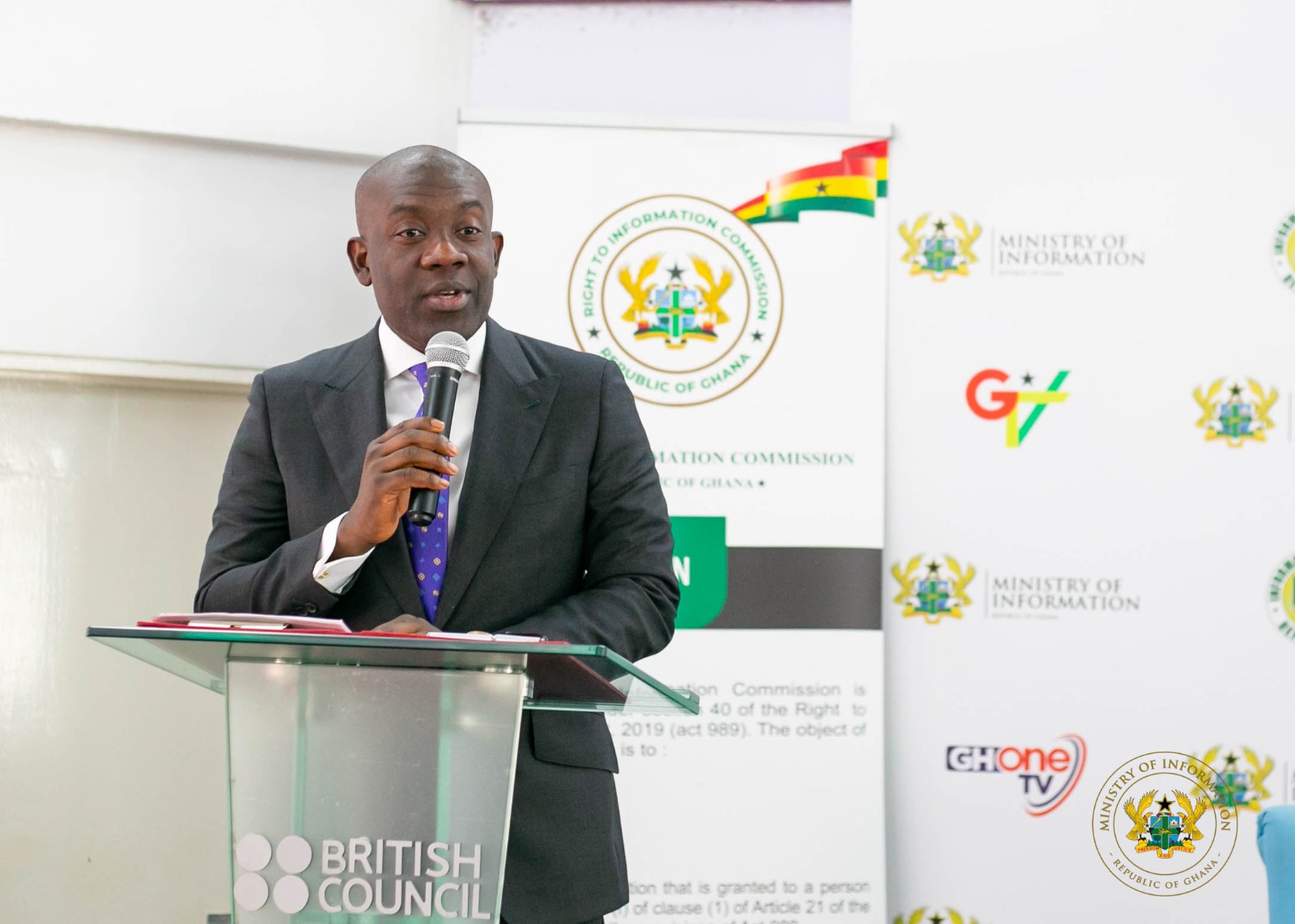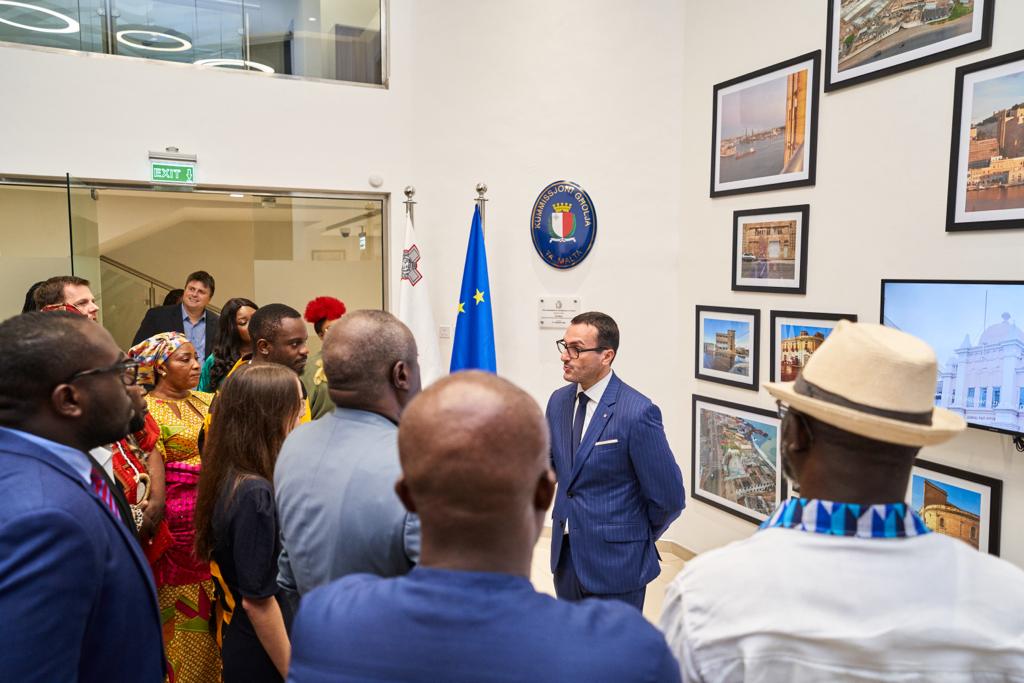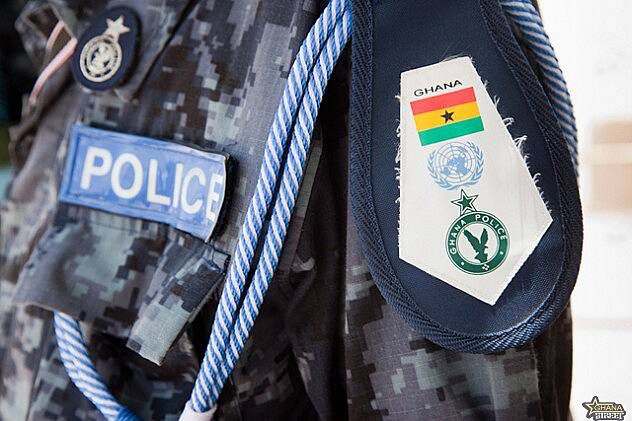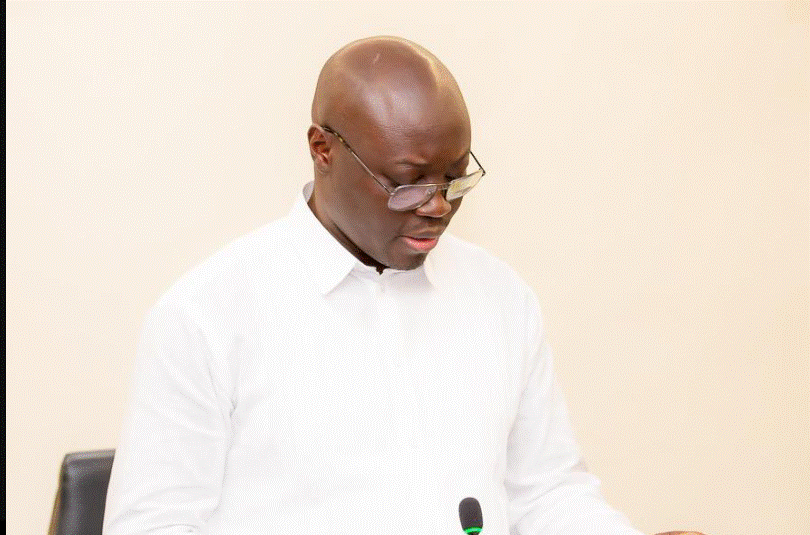


Introduction
There has been an increase and expansion in mobile technology in Ghana, since the mobile phone first appeared in the country. The growth and increasing availability of mobile technology and other connected devices are also leading to high demand for and use of mobile telephony. That technological trend has brought a shift to, and increasing dependence on mobile devices, particularly mobile phones, and the accompanying rising incidents of mobile phone thefts.
The thefts of mobile phones – mostly inflict pain on victims in multiple ways. Victims lose their devices, which is in and by itself a financial loss. Victims also suffer trauma – the trauma of knowing that the devices with personal information, some private and intimate have landed in the hands of a thief. The victims also endure the dreadful knowledge of the possibility of the device with their identification details being used to impersonate them, which further leaves them in pain, fear and trauma often leaving some mental scars.
The thefts of mobile phones – mostly inflict pain on victims in multiple ways. Victims lose their devices, which is in and by itself a financial loss. Victims also suffer trauma – the trauma of knowing that the devices with personal information, some private and intimate have landed in the hands of a thief.
Public data on reported cases
The rising incidents of mobile phone thefts across Ghana are reaching epidemic proportions, even though the up-to-date reported figures are not known. Efforts to get the data on reported cases from the authorities have been unsuccessful.
There is no publicly available data on how many phones are stolen in Ghana at any particular time, but most victims do not report to the police because they do not trust the police to be of help. Indeed, victims who have made reports of their stolen phones to the police have received mixed reactions – some negative, and some positive. Specific experiences of victims will be shared in this write up.
Emergence of mobile telephony in Ghana
Mobile telephony was introduced into the country when Milicom Ghana Limited started the first mobile telephone services in Ghana in 1992. Milicom introduced the Mobitel brand using the TACS technology. A year later in 1993, Celtel Ghana Limited also launched the AMPS service.
Not many Ghanaians could afford mobile phones at that time – it was expensive, bulky and not even handy. But these technologies made mobile phone thefts almost impossible, because to get connected, the customer had to physically visit the offices of the providers for the connection to be made.
Mobile telephony was introduced into the country when Milicom Ghana Limited started the first mobile telephone services in Ghana in 1992. Milicom introduced the Mobitel brand using the TACS technology.
Four years after Milicom’s entry in 1996, Scancom Ghana Limited introduced the GSM mobile phone services under the brand name Spacefon using the second generation (2G) mobile technology.
The technology introduced the use of SIM cards for the first time, and that also triggered the exponential growth of the use of mobile phones in Ghana. A customer could then buy a phone and a SIM from any dealer, slot the SIM into the phone and bingo! The phone goes live.
Vodafone entered the market after purchasing Ghana Telecom, the state-owned mobile technology company which operated the OneTouch brand, and later sold to Telcel. Mobitel later became Tigo, which was sold and merged with Airtel to become AT. Glo also entered the market but didn’t expand as expected.
With the number of users growing, thieves started turning their attention to mobile phones, and mobile phone thefts started spreading. By 2006, the problem of mobile phone thefts has become increasingly widespread in Ghana, that the BBC did a report on the matter. In the BBC report, the Greater Accra Regional Police Command cited the situation as one of its ‘priorities’.
Mobile phone subscriptions in Ghana
With the emergence of these mobile telephone companies, the number of users started going up. By 2007 the number of mobile subscriptions in Ghana had exceeded five million.
Currently, data from the National Communications Authority (NCA) shows that there are over 40.4 million (40,456,198) subscriptions in Ghana, far more than the total population of the country estimated to be around 31 million.
Mobile phone thieves
With mobile phones everywhere, thieves appear to find them easy targets. They snatch them from users in traffic, they ride on motorbikes and snatch them from passengers and pedestrians. There is always news of even armed robbery of mobile phones as assailants sometimes wielding knives and guns threaten their targets and take away their phones.
There is also a category of mobile phone thieves who go on the prowl in homes at night, scaling walls to steal mobile phones while their victims are fast asleep. Once inside a home, they peep through windows to see if phones are in sight. They break windows and put their hands through and pick up the devices. If the devices are not within reach, they would look for long sticks, attach sticky tapes to them and use that to attach to the phones and steal them. Some victims who leave their windows open when the weather is hot at night to get fresh air, become easy victims if their phones are lying within reach. In some cases, victims have reported seeing the thieves inside their bedrooms but made no noise for fear of being attacked.
There is also a category of mobile phone thieves who go on the prowl in homes at night, scaling walls to steal mobile phones while their victims are fast asleep.
No day passes without a painful story of a mobile phone being snatched off the owner. Sometimes in the middle of an important call. The thieves end up selling the phones cheaply. But they are not always able to sell off some models of iPhone. The victims are quickly able to disable them on iCloud, making the devices useless. But users of older iPhone models are not always lucky, as some mobile phone techies have found some apps that can bypass iCloud and put the phone to use, enabling the thieves to sell them. Some victims also who have forgotten their passwords are unable to disable the phones quick enough before the criminals are able to activate them.
While the Ghana police cybersecurity unit has technology to track and retrieve stolen phones, especially if the owner is able to supply them with the necessary information, most victims say their experiences with the police after reporting their cases weren’t pleasant.
Victims tell their stories
Let’s call this victim Morda. Her two phones were stolen while she slept at home in Accra. An iPhone 16 Pro Max, bought in less than a month, and a one-year-old Samsung Z-Fold 4 model with more than GH¢4000 in her Mobile Money account.
Morda says she developed post-traumatic stress disorder after the incident, and since then she has been house hunting.
“I have to relocate for my sanity. Apparently, my neighbour has been seeing someone jump our wall around 2am. It’s a very high wall but no security fence, and at the time of the theft, I had done only about four months there. I’m still a new tenant,” Morda says.
“I actually went ahead and involved the police when my phone was stolen. Since then, I’ve been in and out of the CID headquarters, filing statements, following up, sometimes sitting for hours just waiting to speak to the officer in charge,” she says.
No day passes without a painful story of a mobile phone being snatched off the owner. Sometimes in the middle of an important call.
“One time I got there at 8am and didn’t leave until after 4pm, all just for the basics to be done. The only real lead I had was when I got an email notification that the phone had come online at Madina Zongo Junction. I rushed to the CID headquarters that same day (a Wednesday), no action, but to my relief, it was still online the next day, same location, all day. I thought they’d act fast. But no. It wasn’t until Friday, the Sallah holiday, that any movement happened,” she added.
“They finally asked the inspector to accompany me to the location, just to observe. After that, their next suggestion was that I should go there alone, pretend to be buying a phone, and try to trick the person into showing me my stolen phone. Since that Thursday, the device hasn’t come online again. Almost a month now. It’s disheartening. Even when you do engage the system, you end up feeling like you’re doing the police’s work for them. It’s a sad reflection of how far things have deteriorated,” she laments.
“It’s disheartening. Even when you do engage the system, you end up feeling like you’re doing the police’s work for them. It’s a sad reflection of how far things have deteriorated.”
Dr Emmanuel Boakye is a medical specialist. He has experienced two mobile phone thefts within the space of two years. In 2022 and in 2024. In 2022 he was robbed of his Huawei N19 and in 2024, it was a Samsung Galaxy S22.
The first incident happened in July 2022 in Adjiringanor in Accra.
Caught in a medical emergency, Dr Boakye was making arrangements to transfer a patient suffering a heart attack when his phone was snatched as he typed a message to a consultant.
“I was arranging a patient with a myocardial infarction (heart attack) to the cardiothoracic centre. I have gotten hold of one of the consultants at the centre and was sending him a report on the patient’s status on WhatsApp. In the process of typing, my phone was whisked from my hands by a pillion rider on a motorbike. Someone’s life was hanging in the balance but thieves didn’t care,” he says.
Narrating the story about the second phone theft he said: “I had successfully executed a medical evacuation via an air ambulance of an expat who developed myocardial infarction (heart attack) at a remote site. The patient was handed over to the cardio centre and all was well. I was in an Uber going home, there was heavy traffic so I decided to call various managers to give them verbal updates before I settle and send official emails.
In the process of making a call to one of the managers in Australia (patient was Australian), my phone, a Samsung Galaxy S22 ultra was snatched from my ears,” he says.
Caught in a medical emergency, Dr Boakye was making arrangements to transfer a patient suffering a heart attack when his phone was snatched as he typed a message to a consultant.
While he didn’t make a report about the first case, he reported the second incident to the cybercrime unit of the Greater Accra Divisional headquarters of the Ghana Police Service.
“I had to report this case because of the sensitive contents on the phone. Up until now, I’m yet to hear anything positive from the police,” he says.
Even though he says he retrieved the IMEI and managed to track the phone for some time until it was last located at Ashaiman, he has since lost the signal.
Yaw Osei was attacked on the University of Ghana campus and his phone robbed from him.
“I have been a victim of mobile phone theft. It was an iPhone XR,” he says.
It happened on the night of January 29, 2025 at Mensah Sarbah Annex C on the University of Ghana campus.
“I didn’t report to the police. I felt so traumatized to the extent that I forgot to report to the police.”
“I was going to visit a friend after I had come to Accra to school in UPSA. It was around 7:30pm. I found my hostel boring, so I decided to go and spend the night at my friend’s place. When I reached a building around the place, a man was standing beside a wall. I just passed by. Within seconds I felt the man grab me from behind, and another man from nowhere stood in front of me with a knife. I didn’t resist. I didn’t fight back. There were two men. One was armed. I pleaded with them to let me keep my phone as I was only a student. One of them slapped me. I quickly gave up my phone to them and they ran away,” he said. Osei didn’t make a report to the police.
“I didn’t report to the police. I felt so traumatized to the extent that I forgot to report to the police,” he said.
Nana Akua’s phone was stolen from her not too long ago. It was an iPhone 15 Pro Max. She reported the matter to the police, but her experience after making a report to the police wasn’t a positive one.
“My iPhone 15 Pro Max 512 GB was snatched from me at the Achimota forest on May 30, 2025. I went to the police station the next morning and reported the issue to them. Before that, I was tracking my phone and it was seen at Gbawe cemetery close to the police station,” she said.
She adds: “I went there and the policewoman I met told me she couldn’t assist me because the incident happened at Achimota. I rushed to the Achimota Police Station and spent the whole day there waiting for a CID officer to file my case. He just gave me an extract that I would need it in case I need help with anything regarding the phone and gave me a contact.
“My phone was an eSIM and I had the IMEI so it was easy to track it but they delayed the entire process. I had to report to the cybercrime unit at the CID headquarters on June 1, 2025. The officer I met there made me write a petition to request assistance with tracking the phone and they told me to make the phone usable (remove the lost, iCloud and erase the phone) which I did. I had to get a SIM replacement and that makes the eSIM registration invalid.
On June 18, I got a call from another officer and he asked that I come to their office. I thought it was something positive but he asked me to write another statement for him and they were now going to the court for an order that can be sent to the telecom company. I travelled out last week and just this Wednesday, I called the officer handling the case and he sounded like I was bothering him. Right now I don’t even have any hope of getting my phone back,” she laments.
Victim blaming
Most victims of phone thefts are also blamed for being careless and not being security conscious.
In most cases of phone thefts, some of the questions others often ask them are “what were you doing there and got your phone stolen?” “How did you leave your phone close to the window while you slept?”
Victim blaming makes it difficult for some to even talk about their experiences.
Psychological help
Considering the mental pain victims go through when their mobile phones are stolen, it is instructive at this point to consider it a national crisis; and the state must begin to provide psychological counselling to victims to deal with the trauma.
The police
The Ghana police is the primary law enforcement agency. They are the first point to report crimes to. But as can be noticed from the narrations of the victims in this story, the attitude of the police doesn’t encourage citizens to engage them in times of crisis. Anyone who has ever entered a police station to report a case would be familiar with the cold reception and complete lack of attention to them by officers on the counter.
Police officers often would give the impression that they are doing citizens a favour, and not serving them. Some also see cases as opportunities to fleece victims.
There are, however, instances where the police have acted, followed up and retrieved stolen mobile phones. There are lots of news reports indicating that the police have secured quick convictions of mobile phone thieves. The police just has to be consistent in tackling the epidemic of mobile phone thefts to gain the trust and respect of the public.
Time for Ghana to have a CEIR
Considering the growing trend of mobile phone thefts and the psychological effect on citizens, it is high time Ghana brought into being the dream of the Central Equipment Identification Registry (CEIR). The former Communications Minister, Ursula Owusu spoke about it at her vetting and continued to talk about it at any opportunity during her entire tenure. Owusu argued that the CEIR would curb the incidents of fake phones and so on.
The current Minister in charge of the sector, Samuel George also spoke about it recently, saying the CEIR would be established. He said the CEIR would be used to combat the growing incidents of mobile phone thefts and the influx of counterfeit devices.
India has deployed this system successfully. The CEIR is a system that allows mobile phone users to enter the details of their phones once they are missing or stolen. One would login and register, create a username and password, then enter the International Mobile Equipment Identity (IMEI), a unique 15-digit serial number that is given to every mobile phone. That number can be used to check a phone’s country of origin, the manufacturer and model number.
Once the individual logs in the phone details, the system gives them a unique ID number that they can use to logon to the system whenever they return. Once the missing or stolen phone is reported, it is blacklisted and blocked. That effectively makes the device unusable.
When the phone is later found, the victim would return onto the CEIR and report that the phone has been recovered and then it is unblocked for use by the owner.
Through the CEIR, millions of missing and stolen phones have been recovered, and those that haven’t been recovered yet, are of no use to whoever has them.
It is estimated that the initial cost of deploying a CEIR is around $4 million. But depending on the scale, the necessary hardware and software, or whether there are third-parties involved could influence the price beyond this.
Conclusion
Mobile technology has become very much part of everyday life. People depend on it for a greater part of the time, for work, life and leisure. A mobile phone is even a life and death thing. The mobile phone therefore has transcended being just a device to a tool for living, and should be made impossible to be stolen. The problem of mobile phone thefts should be considered a national crisis and appropriate actions taken to address it.
By Emmanuel K Dogbevi
Email: [email protected]
The post Growing mobile phone thefts in Ghana – A call to action appeared first on Ghana Business News.
Read Full Story













Facebook
Twitter
Pinterest
Instagram
Google+
YouTube
LinkedIn
RSS